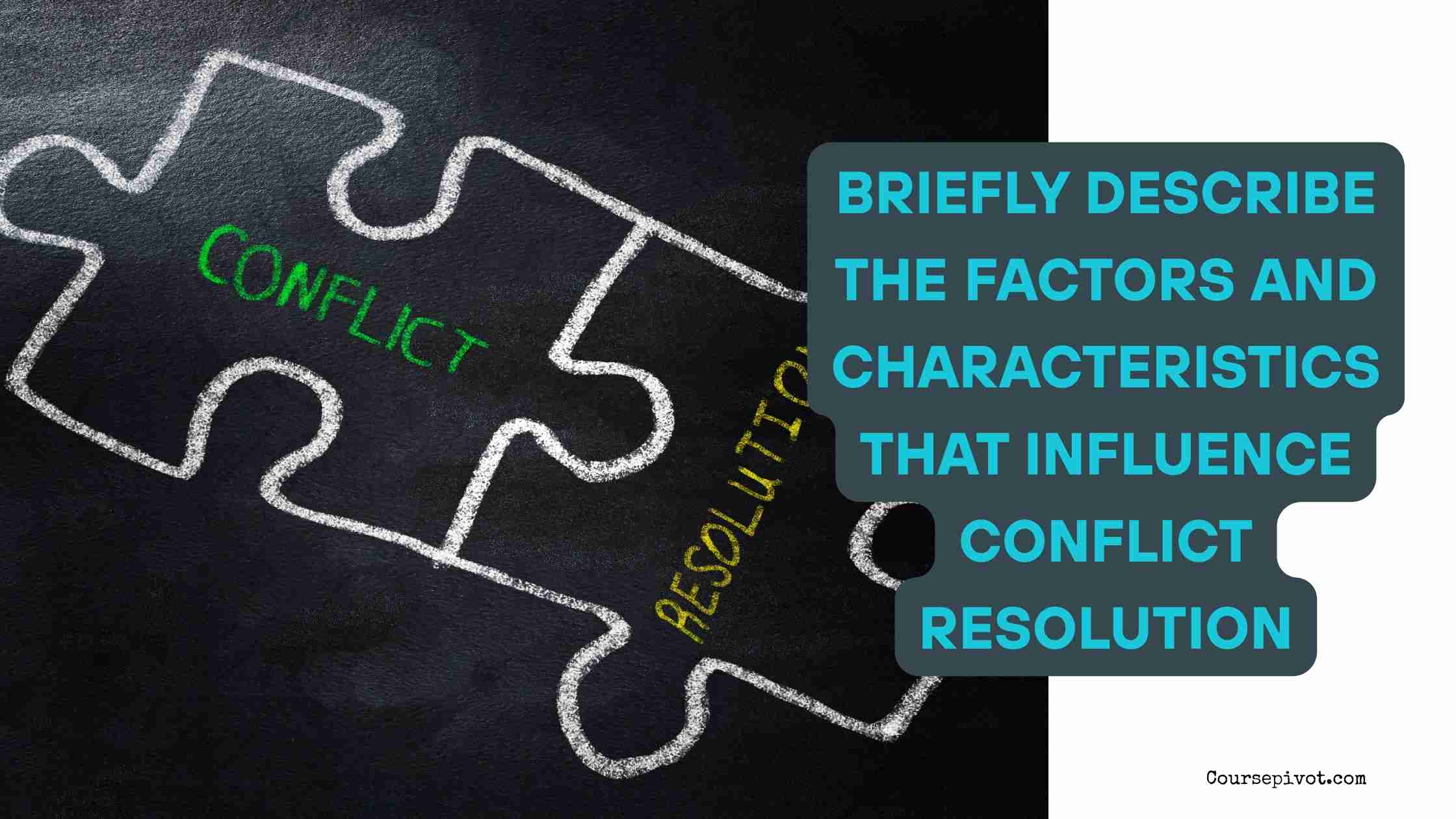
Briefly Describe the Factors and Characteristics That Influence Conflict Resolution
Ever wondered why some people can resolve conflict with calm and clarity, while others spiral into arguments that damage relationships?
Conflict resolution isn’t luck—it’s influenced by specific factors and personal characteristics. Whether it’s a disagreement at work, tension in a relationship, or a group clash, how we handle conflict depends on who we are and what surrounds us.
“Conflict is natural. But how we resolve it? That’s where skill, mindset, and environment come in.”
In this article, I’ll briefly describe the key factors and characteristics that influence conflict resolution, and explain why they matter more than we realize.
Table of Contents
Get ready to see conflict in a new light—not as a problem to avoid, but as a skill to develop.
Key Factors That Influence Conflict Resolution
These external and internal elements shape how effectively a conflict can be resolved:
1. Communication Style
How you express yourself matters. Open, respectful communication builds bridges. Aggressive or passive responses, on the other hand, can make things worse.
- Clear communication → resolution
- Poor communication → escalation
2. Emotional Intelligence
This is your ability to recognize and manage your emotions—and others’. It’s a major factor in diffusing tension and finding common ground.
- High EQ = calm, rational responses
- Low EQ = defensiveness, blame, outbursts
3. Power Dynamics
When one person holds more authority or influence, it can create imbalance. Conflicts are easier to resolve when power is shared or acknowledged respectfully.
4. Cultural Background
Our culture influences how we view conflict. Some cultures value direct confrontation, while others prefer harmony and indirect approaches. Understanding this can prevent misunderstandings.
5. Stakes Involved
Are we fighting over opinions—or livelihoods? The higher the stakes, the more emotional weight the conflict carries, and the harder it might be to resolve.
Personal Characteristics That Shape Conflict Resolution
Certain personality traits and interpersonal habits directly impact how we handle conflict:
1. Patience and Self-Control
People who stay calm and listen—even when emotions rise—can resolve conflict more successfully.
2. Empathy
Putting yourself in the other person’s shoes often reveals solutions you couldn’t see before. Empathy builds connection.
3. Problem-Solving Attitude
Some people focus on blame. Others focus on solutions. Problem-solvers resolve faster and with less damage.
4. Assertiveness
Being passive leads to resentment. Being aggressive sparks defensiveness. Assertiveness—speaking up respectfully—is the balance point.
5. Willingness to Compromise
When both sides are willing to give a little, they can often find common ground.
What Determines the Outcome of Conflict?
In the end, conflict resolution is shaped by both external factors and internal traits. The way we communicate, control emotions, understand others, and balance power all play a part.
Some people may naturally handle conflict well. Others, like me, had to learn through tough conversations and trial and error. But the good news is this: anyone can improve at conflict resolution.
By recognizing the factors and characteristics that influence conflict resolution, you can become more effective, calm, and fair—even in tough moments.
Remember, conflict doesn’t have to break relationships. It can build stronger ones—if you know how to handle it.
Cite this article
You can copy and paste your preferred citation format below.
Martin, L. & Arquette, E.. (2025, May 24). Briefly Describe the Factors and Characteristics That Influence Conflict Resolution. Coursepivot.com. https://coursepivot.com/blog/briefly-describe-the-factors-and-characteristics-that-influence-conflict-resolution/



